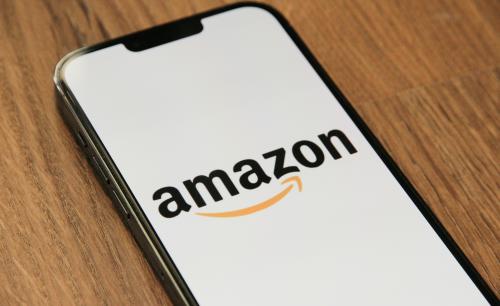When Adrienne Monley started in the stewardship arm of Vanguard in 2015, as a leader on the US side, there were around a dozen people working in the team. That has since tripled in size and Monley moved to London in January 2018 to hire and establish a new stewardship team with a specific focus on European firms.
‘This globalization has been very deliberate on our part,’ she says. ‘Partly to reflect the locations of our assets but also because we’ve found that the more connected we are with markets outside the US, the more we learn about holistic risks and topics potentially relevant to our clients’ investments.’
Here she talks about Vanguard’s three areas of focus – advocacy, engagement with companies and voting at company meetings – making use of the right tools to assess risk and helping companies understand what the asset manager wants.
This interview appeared in the ESG & Investor Engagement report in the summer 2019 issues of IR Magazine and Corporate Secretary.
What is your focus in terms of the issues you engage on?
[We] really focus on four key areas of corporate governance. The first is boards, and when we look at boards, we’re really looking for effectiveness, independence and holistic diversity: diversity of thought, experience and background, as well as diversity across some other dimensions like gender, ethnicity and point of view. We’ve done a lot of research that shows diverse groups will reach better judgments and decisions. And for our clients, we think that’s pretty important at investee companies.
The second area, which is very much related to boards, is the oversight of risk-issue strategy. As an essentially ‘forever’ investor in companies, the effective oversight of company strategy and the consideration of its risks, including material ESG risks, is absolutely crucial to us. We have been talking with companies about how we expect boards not just to identify and help a company manage those risks, but also – really importantly – to disclose them, to help their shareholders understand what risks exists, and what the company is doing to address them.
The third area is long-term-oriented executive remuneration. That means we want to see alignment between executive pay and company performance. We also want to be sure there isn’t an inverse relationship where, if a company doesn’t perform well, its executives’ remuneration still rises.
The final area is a topic we call ‘governance structures’, and this is essentially just looking for companies to have the right governance practices in place to ensure the governance process is working effectively. We are also looking for appropriate shareholder rights in place, so shareholders have a voice and can express their voice directly to the board.
What do you think is driving the ESG boom?
One thing bringing attention to these risks is that, actually, some companies are really embracing more communication and reporting on relevant ESG issues. We’ve also seen different frameworks come to light in the market to support better corporate reporting on environmental, social and non-financial risks.
Company reporting on material ESG risks is one of the areas Vanguard is spending a lot of time on because, for such a widely invested firm as us, great corporate disclosure is – we think – going to help the market be more accurately valued.
We want more comparable and decision-relevant disclosure from companies across the world. We also use tools [such as those offered by reporting frameworks] every day internally as we evaluate firms.
For example, the Sustainability Accounting Standards Board has a tool it calls its Materiality Matrix, which is publicly available and highlights which general topics have the potential to be material risks across individual industries. Vanguard uses this tool as a reference point to validate our assumptions of what risk may be material for a company.
When engaging around these issues, what form does this engagement take?
We talk primarily to boards of directors, and to people who work with them on governance issues, such as corporate secretaries. But investor relations also plays a really important role in shareholder communication. At companies that have been really effective at engagement, I see great partnerships between IROs and corporate secretaries, bridging the gap between financial communications and governance issues.
Taking a step back and thinking about Vanguard’s approach to engagement, however, we consume research from a wide range of sources. This includes research on ESG issues, but also company proxy and governance research, as well as a wide range of different tools and frameworks available in the industry. What we try to do is identify if and where there are company governance practices where we have concerns – or feedback – to provide.
Engagement can focus on different topics. Sometimes we provide direct feedback on a particular voting issue or on a particular governance matter. Other times we’re just in listening mode, staying updated on a company’s progress and monitoring against our priorities.
For example, if a company is publishing its first long-term risk or sustainability report, it may come to Vanguard and ask, ‘Was this helpful for you? What else could we potentially include in this report in the future that will be valuable for a long-term investor?’ To support its progress, we will do a very thorough review. We may refer it to industry comparables, and we’ll share our feedback.
Do you ever come across companies that don’t feel the need to engage with you simply because you won’t sell the stock?
I do sometimes hear that companies focus on discussions with investors that are actively buying or selling their stock. In addition to spending time with active investors, however, it’s equally important for IR professionals to understand the views of their longest-term shareholders.
These shareholders, like Vanguard, are sometimes called ‘patient capital’ and are often interested in having constructive dialogue. That said, I have seen a positive shift in this view – I talk to more IROs today than I have in the last few years. That’s because I think more IROs are recognizing that all the voices in their stock are important, including ours.
What could companies be doing more of to help build relationships with asset managers like Vanguard?
It’s important that companies think about who they’re communicating with, and what the priorities of that investor group are. For example, if you’re stepping into a discussion with Vanguard, it may not be as relevant to bring the quarterly results presentation. Instead, coming prepared to discuss issues like the board, oversight of strategy and risk and other long-term-related issues would be much more constructive. We are less interested in talking about quarterly results than about long-term progress.
I also think when IROs are working with their company’s governance or sustainability professionals, or have a closer relationship with their board, it’s easier to have a high-quality, long-term-oriented discussion. These partnerships can help to bring a great, well-rounded viewpoint to investor dialogue.
In a recent conference I attended, I heard somebody on a panel say, ‘I keep wanting to talk about ESG with investors, but nobody is asking me questions about it’. My immediate thought was that he probably wasn’t talking to his company’s long-term shareholders, because long-term investors would definitely be asking questions about governance and material risk issues.
So it’s important to come prepared with the right content, but also to make sure you’ve got an audience with the right investors.
This article originally appeared in the Summer 2019 issues of IR Magazine and Corporate Secretary









